With waste pickers as protagonists, Itaipu brings waste management model to Belém, inspiring the Legal Amazônia and the world for COP30
The second article in the "COP30 Infrastructure" series highlights the importance of the renovation of the recyclables recovery units in the conference host city. The largest investment in the binational company’s history outside its jurisdiction will ensure more efficient recycling and better conditions for waste pickers.
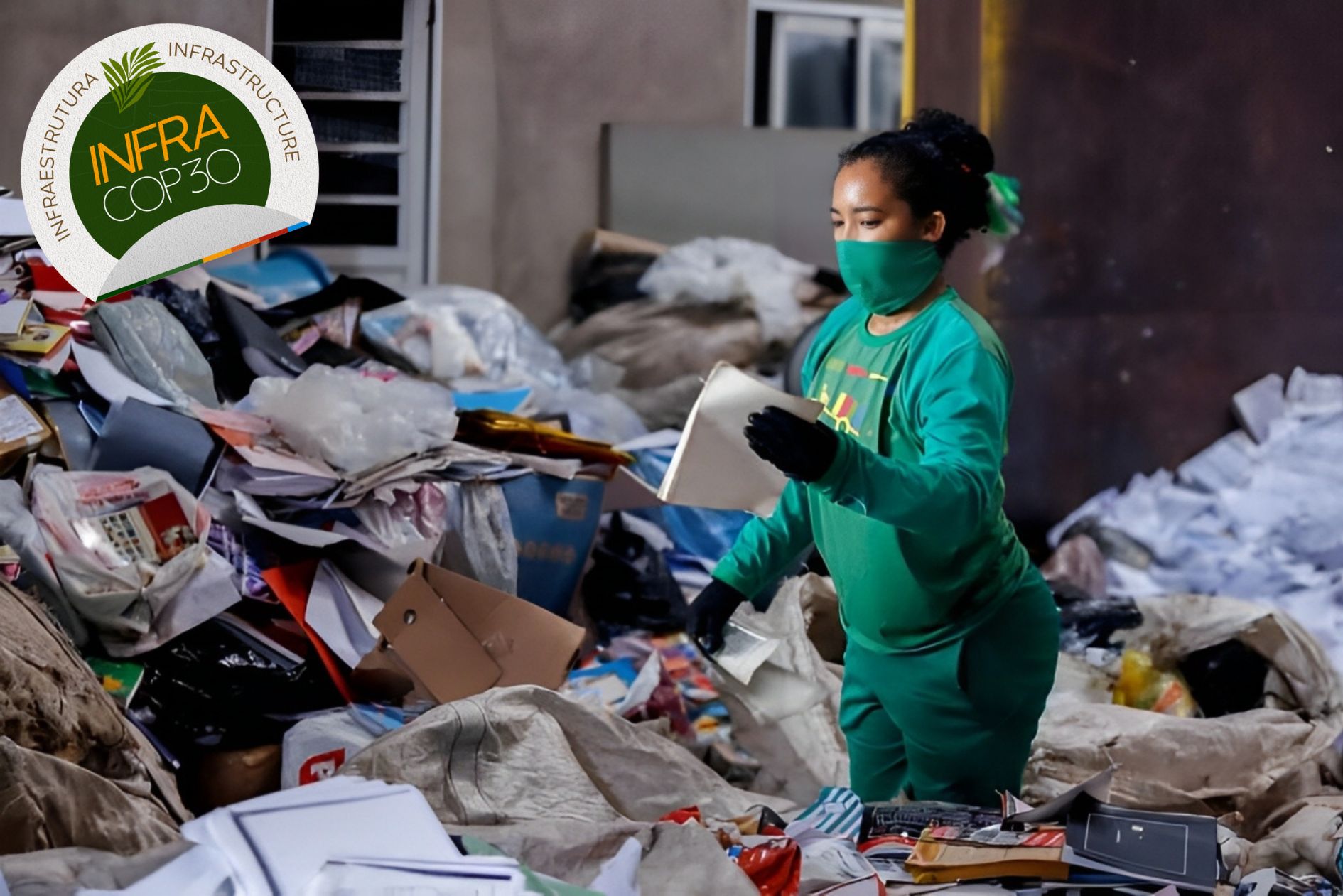
By Franciéli Barcellos de Moraes | francieli.moraes@presidencia.gov.br
"We cannot talk about climate change without talking about waste. This statement comes from Débora Baía, president of the Cooperative of Collectors of Recyclable Materials (Concaves), one of the largest recyclables recovery units (UVRs) in the northern region of Brasil. On a daily basis, she experiences the values of the 30th United Nations Conference on Climate Change (COP30), held in her city of Belém in November.
With an area of 1,770.53 m² covered, Concaves is the first of four cooperatives in the capital of Pará to begin renovations, maintenance, and adaptation of its storage shed. The works are part of Agreement 71 (Solid Waste Management, Environmental Education, Innovation in the Bioeconomy), financed by Itaipu Binacional and carried out by the city of Belen in view of COP30. The goals include improving selective collection and recycling rates in the host city, as well as the living and working conditions of cooperative waste pickers.
If the annual amount of solid urban waste generated in the world were placed in transport containers and lined up side by side, the distance would be more than a round trip to the moon: more than 768,800 kilometers.
The United Nations Environment Program (PNUMA) estimates that global solid urban waste generation will increase by two-thirds by 2050. In Brasil, the permanence of landfills and the irregular incineration of waste account for about 6 million tons of greenhouse gases, according to a study by the Economic Department of the National Union of Urban Cleaning Companies (Selurb).
Reference in recycling in Legal Amazônia
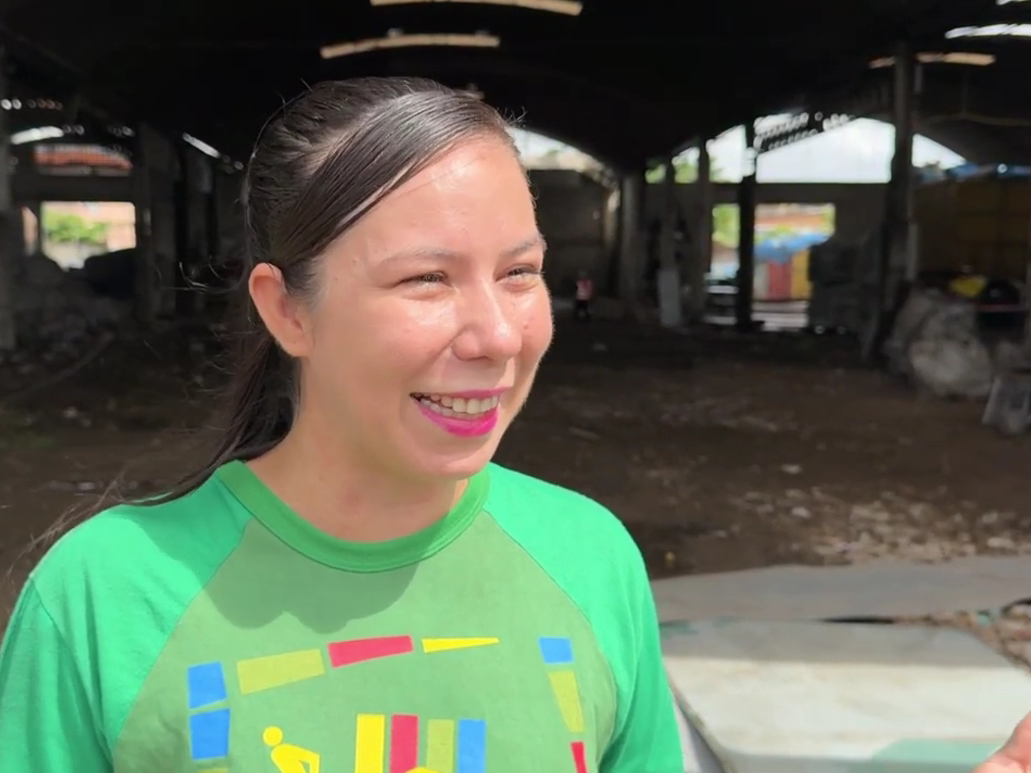
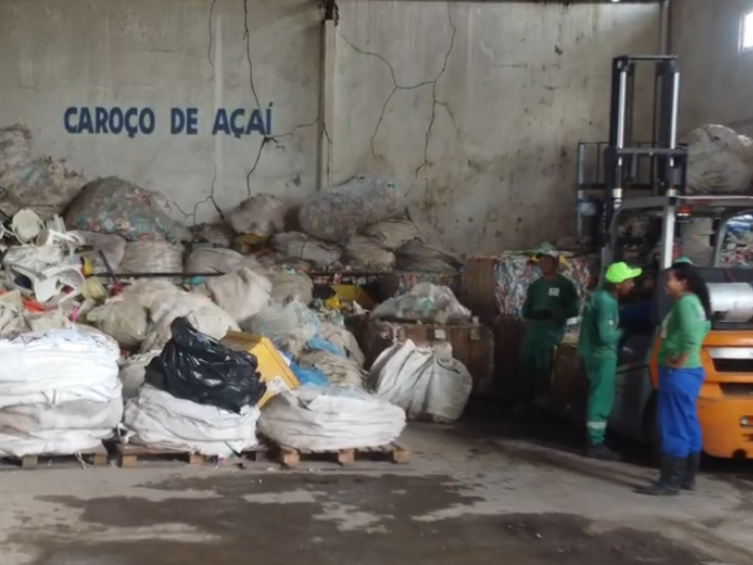
Located across from the Guamá River, with a direct view of the Amazônia flora and fauna, the UVR currently has 120 collection points, including businesses, condominiums, schools, universities and public institutions, and processes approximately 800 tons of solid waste per year. At the end of the project, this figure could increase by around 400%, as the investment will guarantee greater operational efficiency for the recycling system. In terms of human resources, Concaves works with 22 cooperative members, who are expected to earn at least two minimum wages once the project is completed. Thirty people are already on the active list to start work when the renovation is completed.
"With the completion of the work and the training of the cooperative members, Concaves will increase its processing capacity to 300 tons per month. This upgrading will have a significant impact on urban cleanliness, public health and the quality of life of the population of Belém, as well as promoting new job and income opportunities for recyclable material collectors," says Olmo Xavier, Director General of Projects at the Extraordinary Secretariat of the Office of the Chief of Staff for COP30.
"We will be able to show all the other states of Legal Amazônia that it is possible for a waste picker cooperative to manage an area of this magnitude"
"Even more important than developing this work in the community where COP30 will be held, is that we will be able to show all the other states of Legal Amazônia that it is possible for a waste picker cooperative to manage an area of this magnitude, to obtain such a benefit, that we have the capacity to do this, to be a reference center," says Débora, president of Concaves and coordinator of Central da Amazônia, the only cooperative center in the Brazilian region of the South American Rainforest.
Historic investment in Itaipu Binacional
"Itaipu's mission is not only to produce cheap, quality energy, but also to be socially and environmentally responsible. And there is no better socio-environmental objective in the world than COP30"
Itaipu Binacional's investments in Belém in preparation for COP30 represent the largest financial contribution in the history of the international public company outside its geographical area. In total, the city has BRL 1.3 billion in investments from the binational company, which is the largest producer of clean and renewable energy in the world, promoting sustainable development and good environmental and social practices.
"Itaipu's mission is not only to produce cheap, quality energy, but also to be socially and environmentally responsible. And there is no better socio-environmental objective in the world than COP30, which is debating the world's climate and, above all, drawing the world's attention to Brasil and its energy transition policy," says Enio Verri, the company's Brazilian general manager.
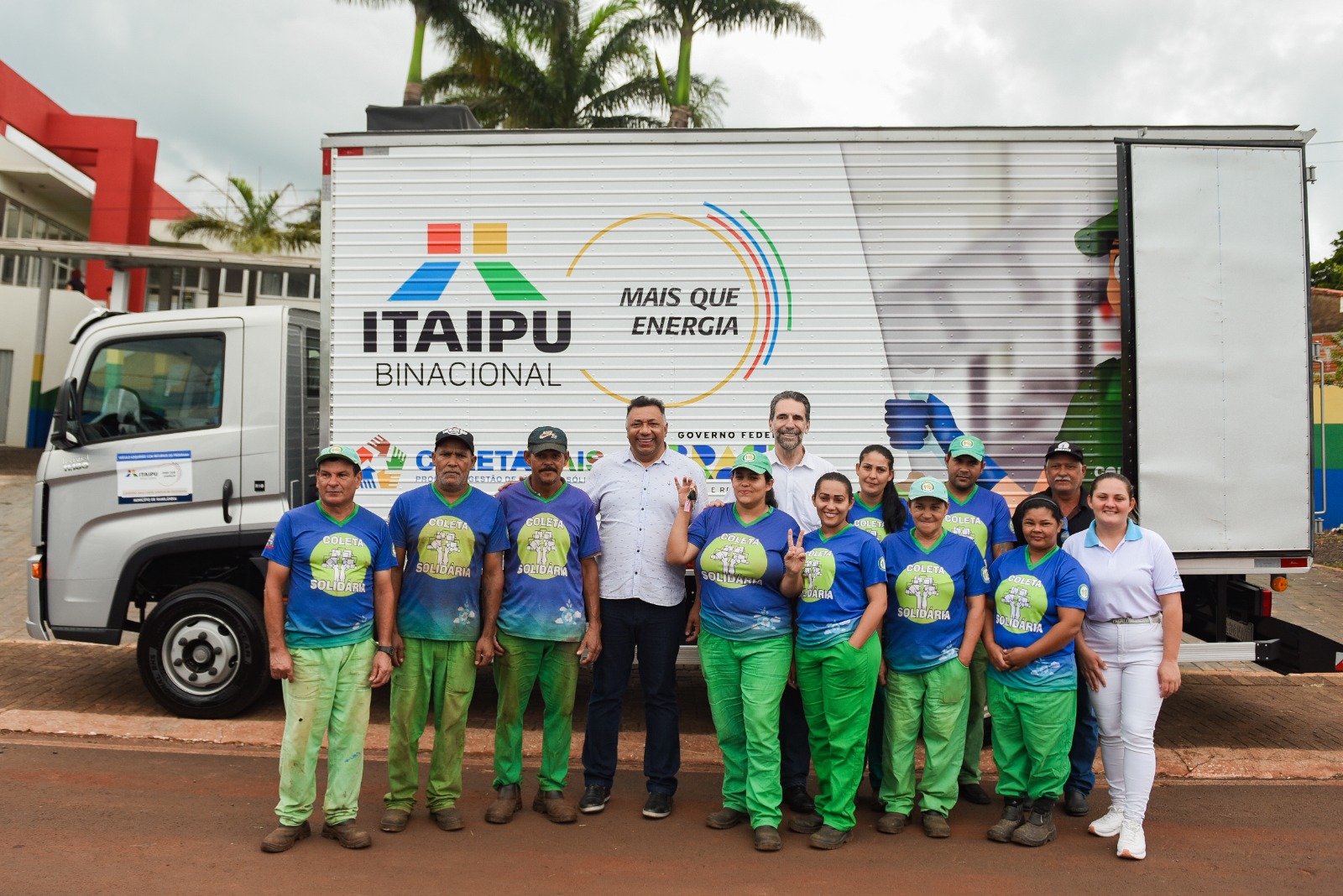
Specifically, the work on the UVRs is part of a broader project known as Agreement 71, which also includes the purchase of a hydrogen-powered boat, environmental education activities, and the renovation of the Belém Bioeconomy District, which will house some thirty companies related to the topic. Both the renovation of the district and the educational activities will be covered in future articles.
The four units will have photovoltaic energy generation systems and biodigesters, and in total, more than one million people in 37 neighborhoods are expected to benefit. The methodology is already well-established by Itaipu and Itaipu Parquetec, which are developing it in the 55 communities covered by the plant's area of operation.
The initiative goes beyond the provision of equipment and infrastructure to include technical assistance, training and even the promotion of municipal legislation. According to the binational company, in 2019, the recyclables recovery units in its area of influence generated BRL 10.8 million in operating revenue, in addition to BRL 4 million in savings for municipalities in the operation of landfills. The report also indicated that more than 16,000 tons of recyclable materials were sold during the year.
The “Reciclômetro” making the difference
The “Reciclômetro”, a panel developed jointly by technicians from Itaipu and the Technology Park, municipal representatives and waste picker leaders to monitor and systematize results, will also be implemented alongside the cooperatives in Belém. The tool provides a set of economic, social and environmental indicators that measure service levels, identify areas for improvement, and highlights the impact of solid waste management.
"We hope that our project, which have been active in Belém for twenty years, will also make progress. In society, we have the “impostômetro” (a tax measurement tool), the “hidrômetro” (a water meter), and why not the “reciclômetro”, to find out exactly how much is collected in a small city. If you divide the amount by the population, you will know how much is collected per capita," explains Luiz Suzuki, Itaipu Binacional's COP30 contract manager, who points to the experience of small municipalities in Paraná that already collect 90% of their waste.
Brasil's government commitment
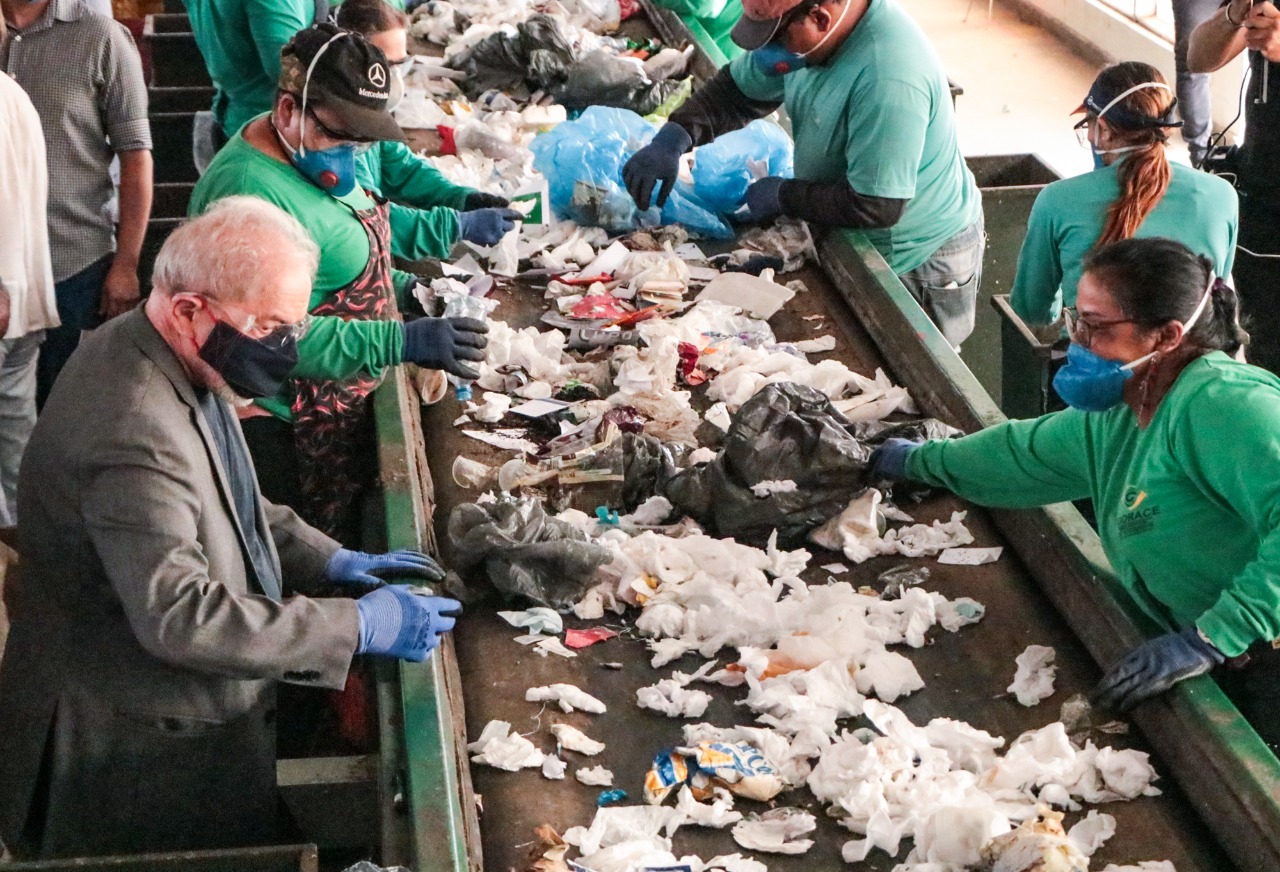
Since 2010, the federal government has been working on the National Solid Waste Policy (Law No. 12.305/10), which regulates the way governments, businesses and consumers should deal with solid waste in Brasil, with the aim of reducing the impact of this type of waste on the environment and public health, and promoting a circular and sustainable economy. In 2023, Brasil's president, Luiz Inácio Lula da Silva, reaffirmed the key role of waste pickers in urban waste management and revived the Pro-Catador programme, which had been created in 2010 and was due to expire in 2020. Now known as the Diogo de Sant'Ana Pro-Catadoras and Pro-Catadores Programme for Popular Recycling, it articulates public action aimed at promoting and defending the rights of professionals who work with reusable and recyclable materials.
Thus, last year, Brasil's federal government announced Novo Cataforte, an initiative with BRL 103 million to support the socio-productive inclusion of waste pickers and strengthen recycling cooperatives and associations. One of the goals is to increase their participation in selective collection in cities and in the reverse logistics process. Another announcement was the Citizen Connection, a project to provide health care, such as first aid and vaccinations, to waste pickers. Mental health assistance is also planned, to provide psychological support to workers, who are often victims of stress and discrimination.
English version: Trad. Bárbara Menezes
Proofreading: Enrique Villamil
